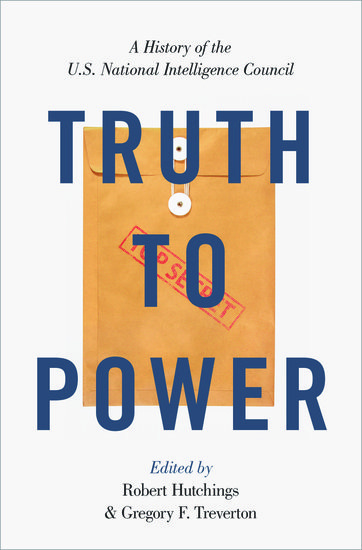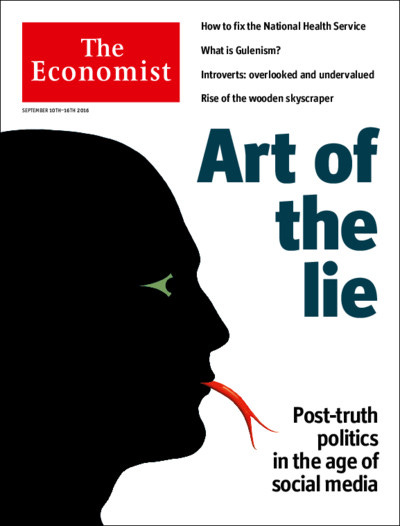In Part 1 of this two-part series I discussed the National Intelligence Council (NIC) and its role iin synthesizing and summarizing intelligence from across the U.S. government’s intelligence gathering agencies. Today, in Part 2 I take a broader look at the challenges of securing reliable intelligence in an environment characterized by ever-present politics.
Intelligence in decision making “includes the gathering, processing, and dissemination of information.” More specifically,
The intelligence function may be distinguished from the advisory function, which recommends policy rather than merely presenting policy considerations . . . The intelligence function has been most fully developed in modern military organizations; but the same function is fulfilled with more or less adequacy in all groups.
To say that intelligence has been politicized is to suggest that considerations of political expediency play such a significant role in the gathering, processing, and dissemination of information that they influence judgments about empirical reality. Such departures become pathological when they result in avoidably flawed intelligence that supports decisions that result in undesirable and otherwise avoidable outcomes.
Robert Hutchings, who chaired the NIC from 2003 to 2005 under President George W. Bush, recounts an “ethical inventory” he assumed in the position, following the U.S. decision to invade Iraq:
I could not hold myself accountable for the decision to go to war or even for the conduct of the war, because I had no say on either matter, but I did hold myself accountable for telling truth to power and protecting those under my authority so that they could do likewise. Our job was to present the best and most honest analysis possible to senior policy makers; this was our professional as well as our ethical responsibility. Of course, we did not believe ourselves to be the sole possessors of “the truth,” and we fully understood that political leaders often had valid reasons for disregarding our council, but we knew the difference between calling things as we saw them and adjusting our message to avoid offending the powers that be.
Hutching’s recollections are part of a fantastic collection of perspectives from the eight men who chaired the NIC from 1993 to 2017 under President Barack Obama — Truth to Power: A History of the U.S. National Intelligence Council — edited by Hutchings and Gregory F. Treverton, (NIC chair from 2014 to 2017). In fact, Truth to Power is one of the best books I’ve read on the real-world challenges of providing expert advice to decision makers.

Joseph Nye, who died last month at 88, was the NIC chair from 1993 to 1995 under President Bill Clinton. In his chapter he describes “estimative intelligence” which he explains, “starts with the available facts, but then it trespasses into the unknown and unknowable — the regions where we lack facts.”
Nye asks, why not just stick to the facts? He answers:
One reason is that facts about crucial international issues are rarely conclusive. There is often enough evidence to indict, rarely enough to convict. Yet policymakers are under enormous pressure to make decisions. In some cases they can wait for more information, but in others, waiting is itself a decision with irreversible consequences. Insight is scarcer than information. To help policymakers interpret the available facts, to suggest alternative patterns that the facts might fit, to provide informed assessments of the range and likelihood of possible outcomes — these are the roles of estimative intelligence.
One of the fundamental challenges of our time — for policy makers as well as for the public — is knowing what is true, or plausibly true, and what is false. Does intelligence about the world actually matter?
Maybe not. Abe Greenwald, in his Commentary newsletter last week, discussed the seven fake studies, apparently invented by AI, cited in the White House’s Make America Healthy Again report:
Robert F. Kennedy Jr.’s “Make America Healthy Again” report, issued last week, cited at least seven articles that don’t exist. This is pathetic, wildly irresponsible, and—for those still capable of being shocked by our political class—shocking.
But in another sense—and I hate to say this—it’s a minor story. Because we’ve gotten to the point where all affairs of national importance now play out in a strange borderland between fact and fiction. The depressing truth is that, for most purposes, a non-existent study works just as well as a real one. That’s why the White House was able to fix the report so quickly. If the studies to support MAHA’s claims were false, surely there were “real” ones out there ready to be plugged in. And there were. Because there are studies to back up every side of every argument.
More than 20 years ago, in a classic paper, science policy scholar Dan Sarewitz identified the overarching dynamic — what he called a “excess of objectivity” in environmental debates, explaining that in the case of climate change,
. . . those holding different value perspectives may see in the huge and diverse body of scientific information relevant to climate change different facts, theories, and hypothesis relevant to and consistent with their own normative frameworks. This condition may be termed an “excess of objectivity,” because the obstacle to achieving any type of shared scientific understanding of what climate change (or any other complex environmental problem) “means,” and thus what it may imply for human action, is not a lack of scientific knowledge so much as the contrary—a huge body of knowledge whose components can be legitimately assembled and interpreted in different ways to yield competing views of the “problem” and of how society should respond. Put simply, for a given value-based position in an environmental controversy, it is often possible to compile a supporting set of scientifically legitimated facts.
From this perspective, intelligence — “the statements on the basis of which decisions are made” — is always going to be politicized to some degree as views of reality are inevitably filtered through our subjective human perspectives.
Does this mean that reality is just whatever suits your or my politics, and intelligence is really unnecessary except to buttress those beliefs in political conflict?
It is true that sometimes reality does not actually matter for decision making. Part 1 of this series (and the follow up) described how the Trump administration wanted reality to support the finding that the Venezuelan government was overseeing an invasion of the United States — as that would enable the invocation of the Alien Enemies Act to legally justify deportations. However, if the intelligence provided by the NIC did not support that reality (whether true or not), then the Trump administration could simply pursue deportations under an alternative legal statute, or generate alternative intelligence.
But typically reality does matter for decision making.
For instance, Hutchings describes the intelligence the NIC provided to the Bush administration in 2004 in the aftermath of the Iraq invasion:
. . . the core message the NIC was delivering , in various forms, was that the insurgency in Iraq was deepening and widening, and that the cause was not “foreign fighters”, but the US occupation itself. It was a message we took no joy in delivering, but had it been heeded, it could have produced a change in direction before events in Iraq descended into utter chaos.
Intelligence can effectively inform decision making only if there is receptivity to intelligence among decision makers. Hutchings explains that at that time, there was no such receptivity, continuing,
Yet no one on the policy side wanted to consider judgments so contrary to their hopes and expectations. Refusal to consider contrary thinking and to cling to failing policies are among the pathologies of “groupthink.” So is the presence of “self-appointed mind-guards” who defend the correctness of the group by labeling those who hold contrary views as being disloyal.
In 2025, the biggest challenge facing intelligence — broadly conceived — is that everyone wants to politicize it, that is, to shape what is believed to conform to a parochial political agenda, reality be damned.

This dynamic is now common across the political spectrum and has been with us for a while — The 2016 word of the year from Oxford University Press was post-truth.
Even though intelligence cannot be completely free of politicization, reality still matters. Pathological politicization of intelligence leads to bad decisions, and bad outcomes — Pearl Harbor, 9/11, WMDs are familiar in cases of national security, but as readers of THB know, intelligence failures are endemic across policy topics.
Countering the pathological politicization of intelligence will not result from trying to win arguments over reality. The only successful counter will come from strong leadership — in politics and in institutions of intelligence — that respects that reality matters, and that some people and institutions should be supported to call things as they see them, regardless whose interests might be implicated. In 2025, such leadership is in short supply.
This post was originally published on The Honest Broker. If you enjoyed this piece, please consider subscribing here.